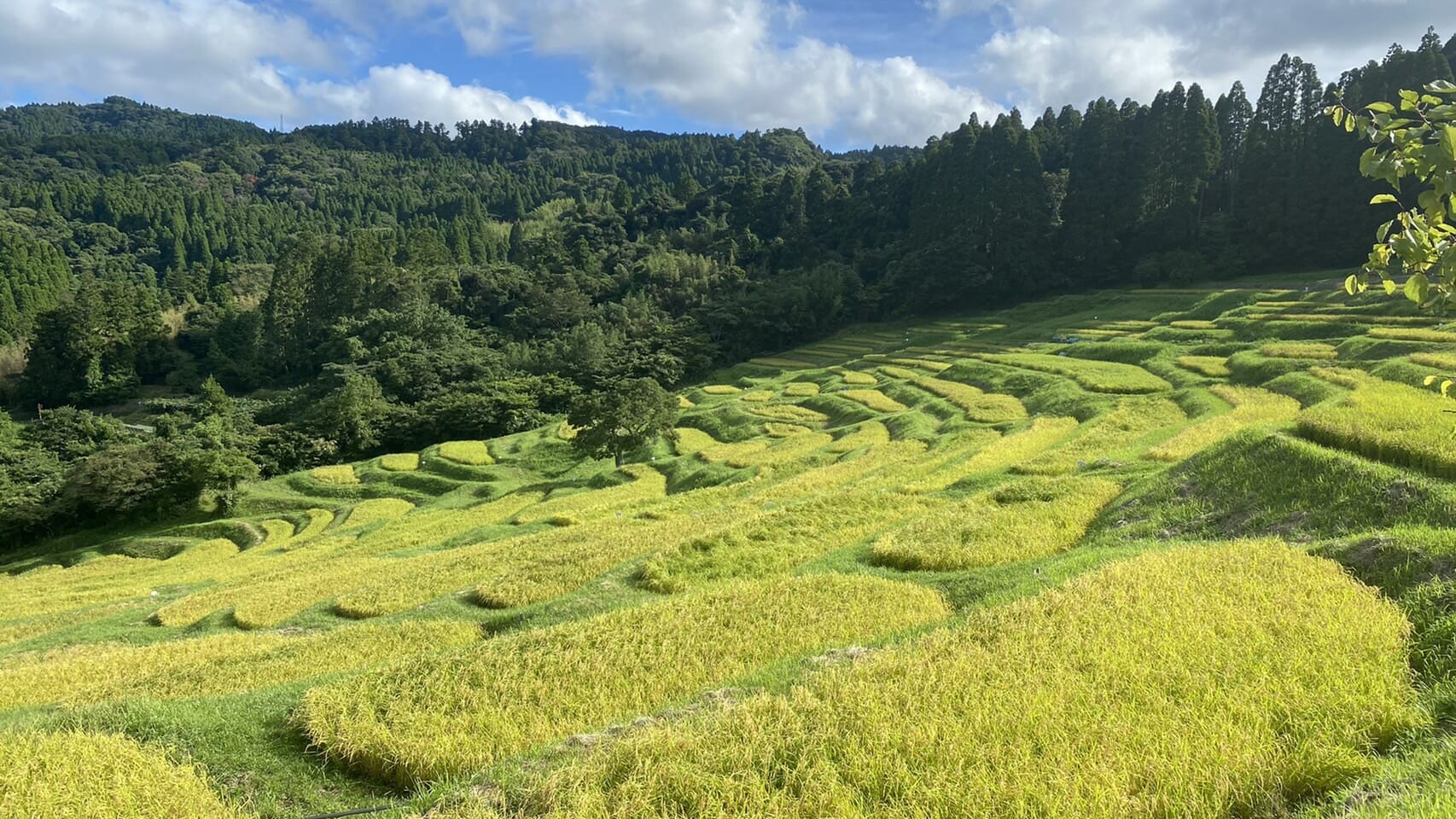
Things to Do | Visit Chiba | Latest update:2025/02/25
Oyama Senmaida, located in the Chiba countryside but accessible from Tokyo, was once only well-known to locals. That changed in 2008 when the Oyama Senmaida Preservation Society, the NPO which manages these terraced rice paddies, embarked on a process to re-invent the Oyama Senmaida brand. This step was taken–in concert with the local government and ambitious regional citizens–due to a growing feeling that drastic measures were necessary in order to attract outsiders to liven up the local area. The organization started an owner system, whereby people not living in the community could have a hand in the ownership and harvesting of the rice fields. Since this was a novel endeavor for Japanese society, the association rapidly gained attention and eventually went viral thanks to media giants such as NHK and TV Asahi. There was also great assistance from an NPO called Tanada Network, and in particular from Minehiro Nakajima: a renowned scholar of agricultural geography and an authority on rice terraces in Japan. Nakajima appreciated the mission that Oyama Senmaida had taken on, so he decided to help them with their public relations.
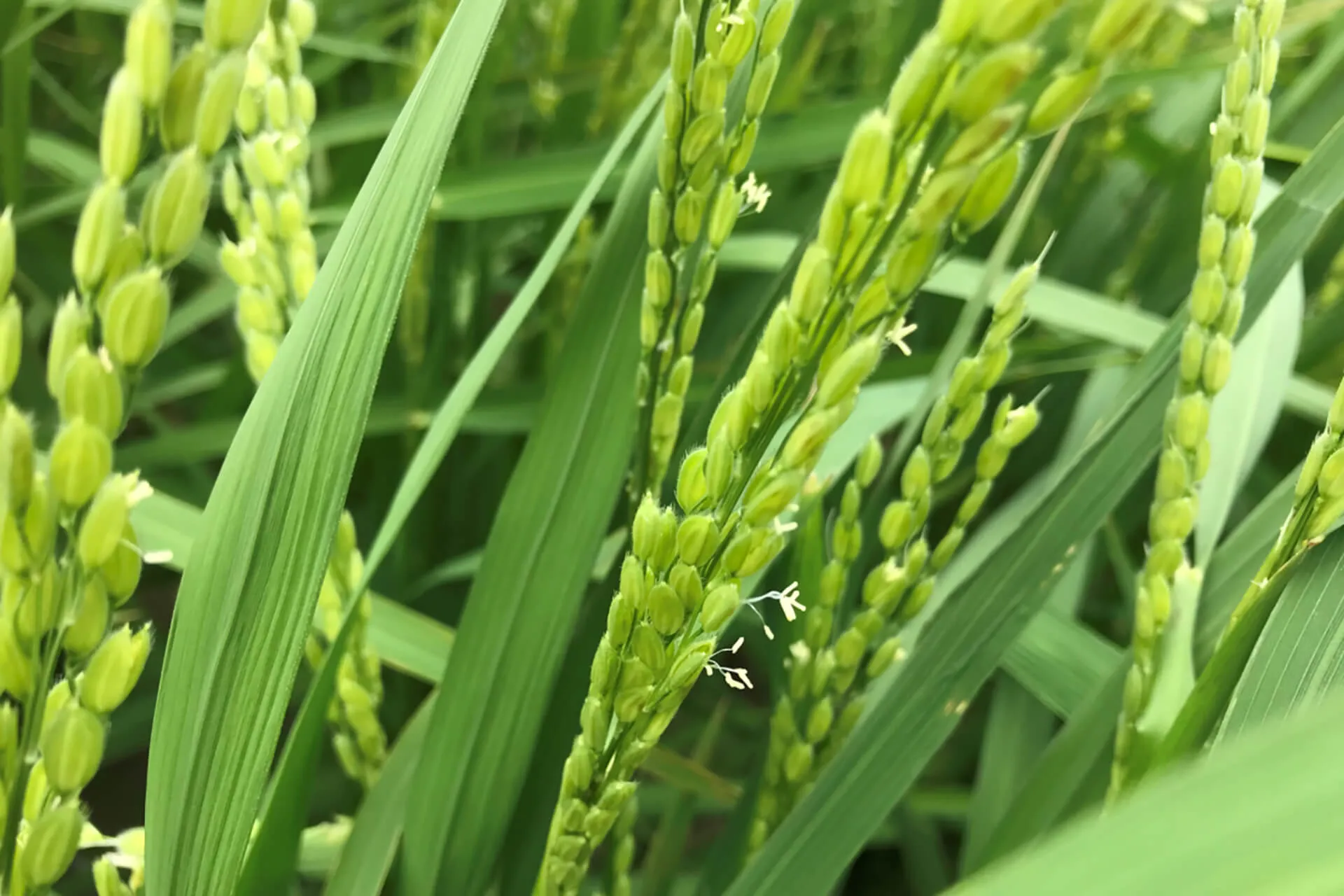 Oyama Senmaida Preservation Society
Oyama Senmaida Preservation Society
The owner system permits new farmers to take a one-year ownership–from April to March–of a section of the rice fields, allowing them to enjoy hands-on farming experiences like planting rice and weeding. Of course, the owner system includes harvesting privileges, but should it prove too difficult for first-time farmers, local farmers will assist with the task. The concept is that you don’t have to tend the fields every single day of the year; you can farm for your pleasure, and at your leisure.
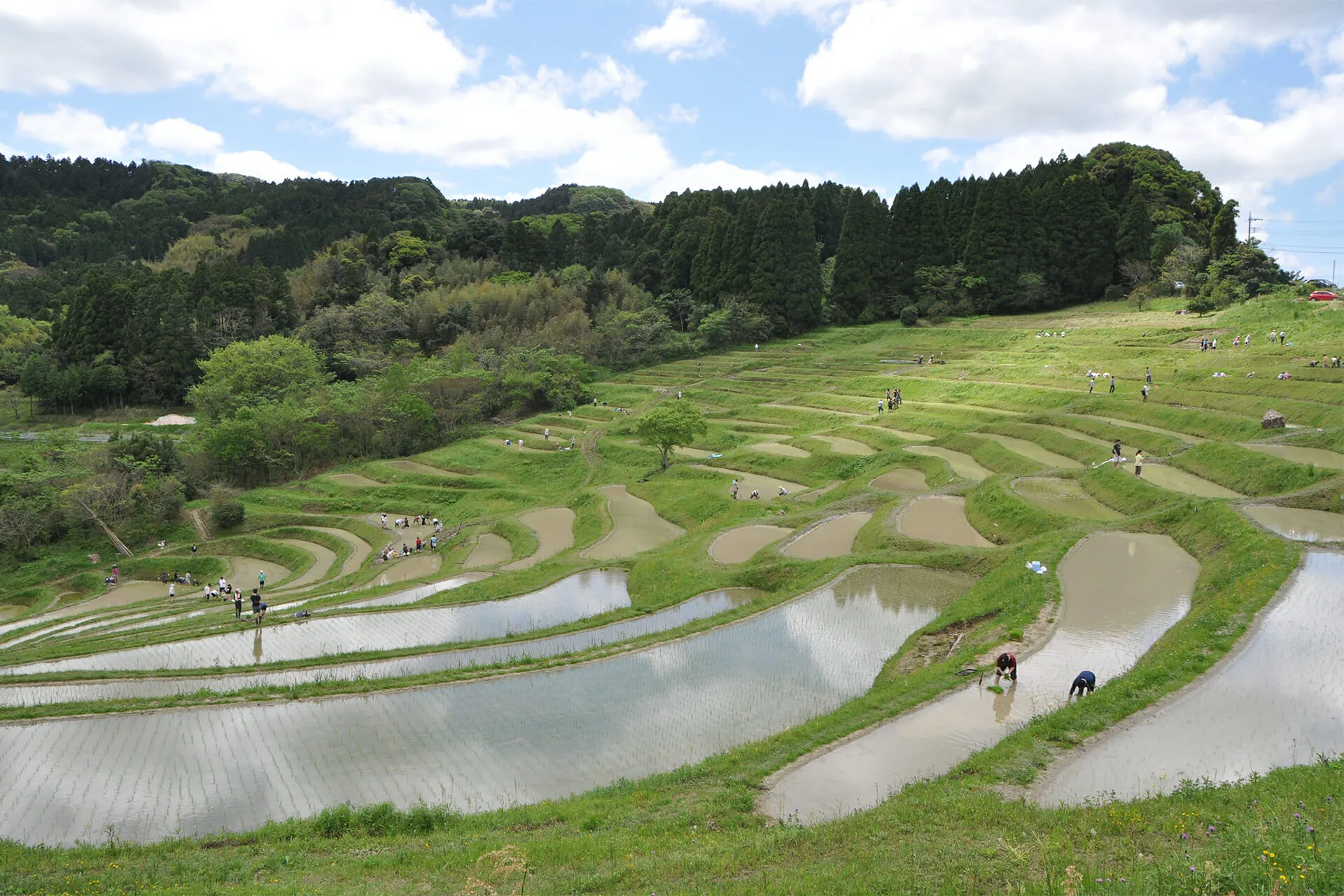
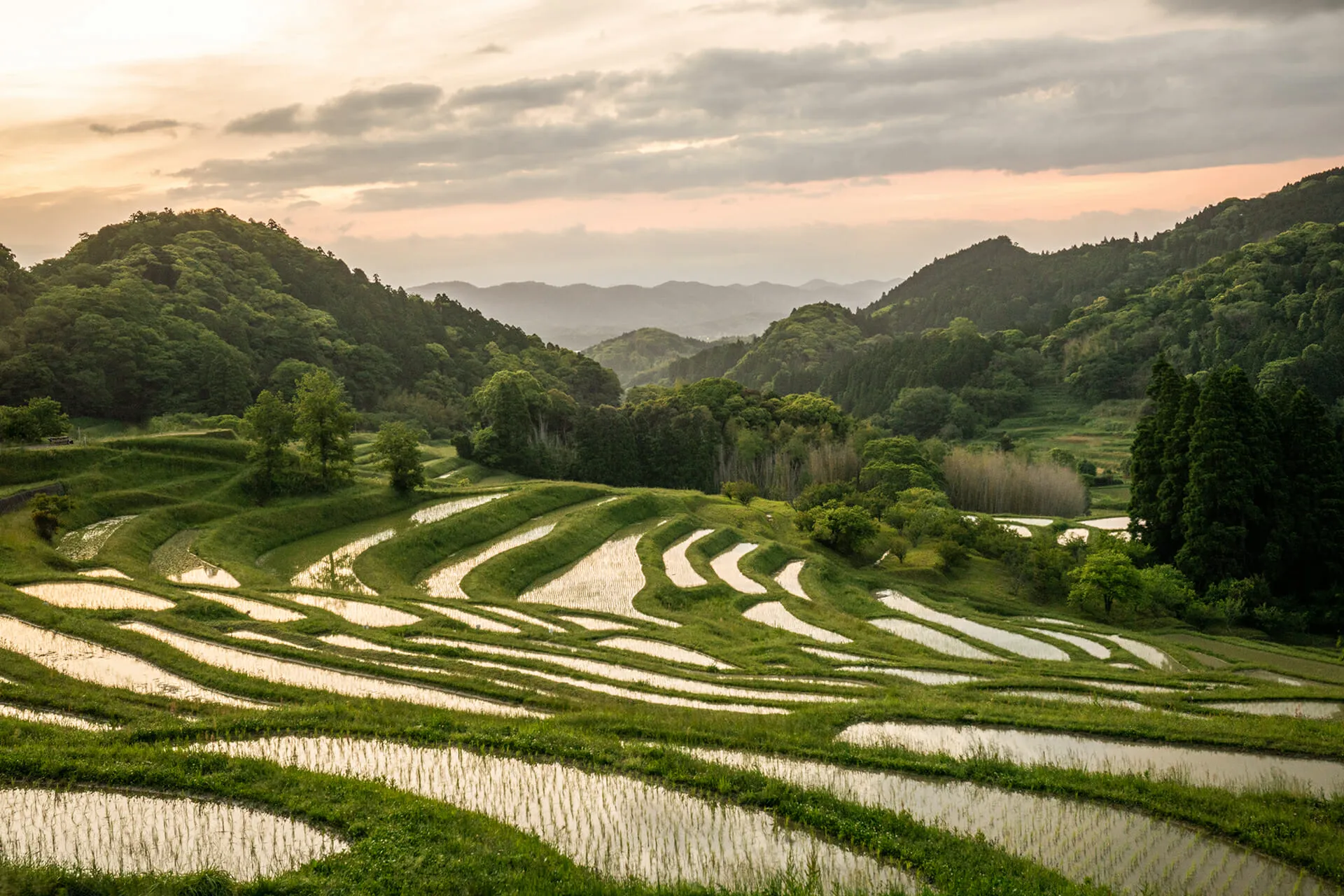
The system was conceived as a measure to conserve Japanese culture. Since fewer young people were choosing to take up farming as a career choice, and the stewardship of rice fields had also seen a steep decline in popularity, Oyama Senmaida took it upon themselves to propagate knowledge of farming, farmers’ lifestyles, and the culture of farming; in order to conserve a fading, but integral part of Japanese culture. The NPO also organized activities to teach people about the details of the trade; like how to tie rice with straw and dry it in the fall, and other seasonal activities like rice planting and harvesting.
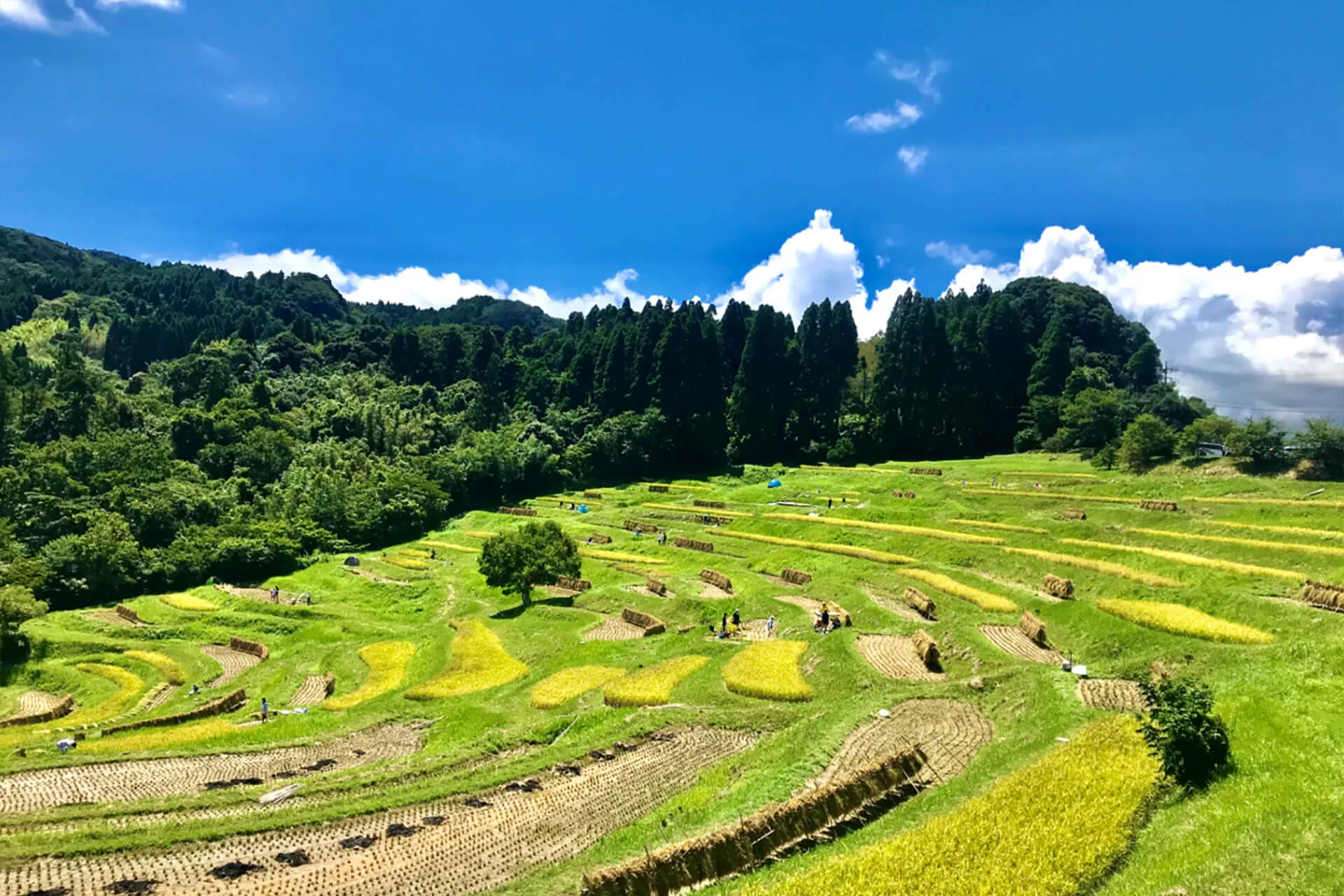 Oyama Senmaida Preservation Society
Oyama Senmaida Preservation Society
Should foreign residents–or foreign tourists–be hesitant to participate in any of the activities, due to a lack of fluency in the Japanese language, Oyama Senmaida would like to assure you that they do have English speaking staff to assist you with your reservations and participation. If you are interested in trying out a hands-on experience here, we recommend contacting Boso Adventure Tours, who also arrange a custom tour for you.
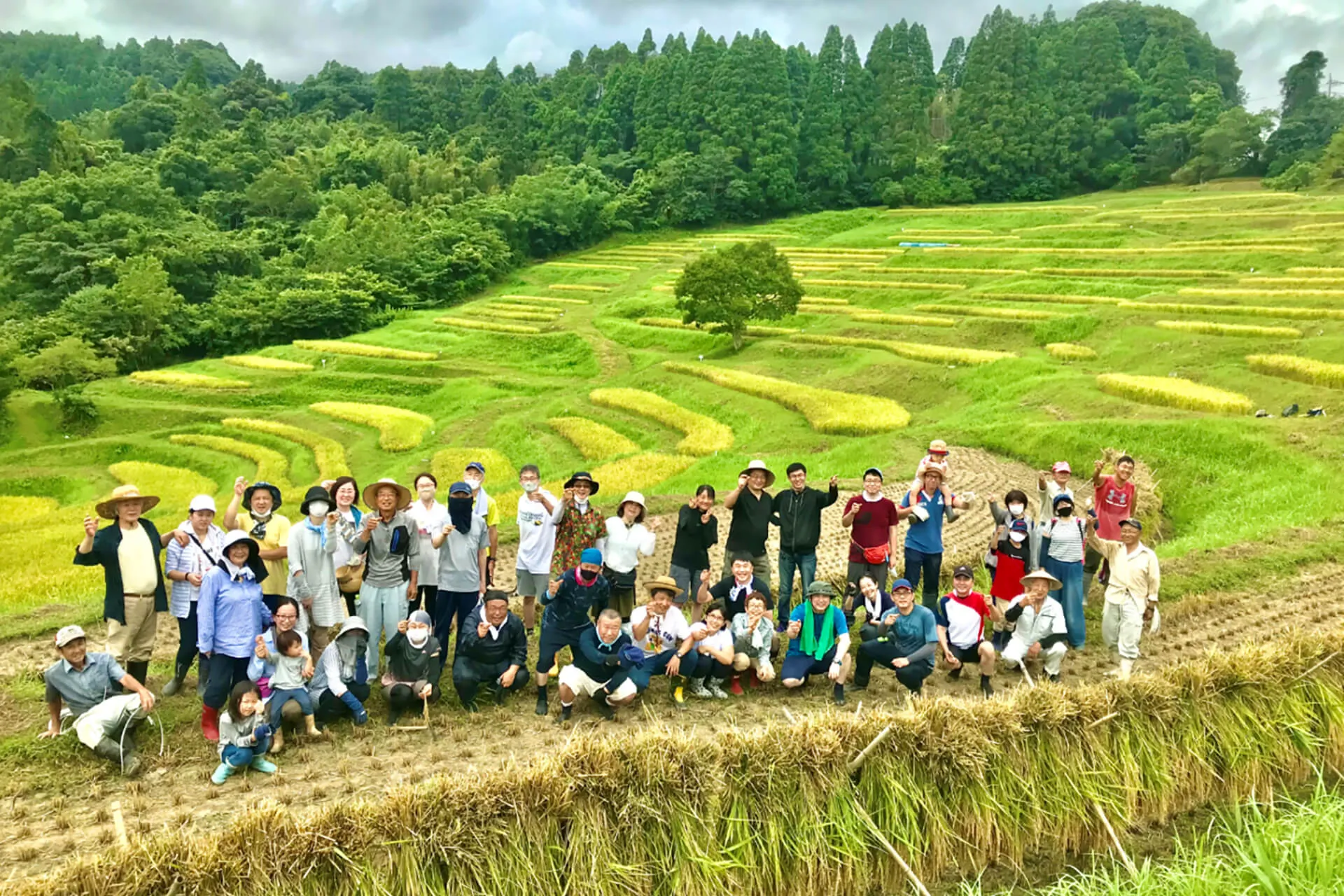 Oyama Senmaida Preservation Society
Oyama Senmaida Preservation Society
Mr. Asada, Secretary General of Oyama Senmaida, says he would like to continue to expound the good points of domestic agricultural products and farming culture. He thinks this work will lead to the training of successors; to carry on the proud traditions this region has practiced for millennia. To achieve those goals, he says, Oyama Senmaida plans workshops for university students, and exchanges between urban and rural areas. “Through such activities,” he says, “we hope that not only urban people will learn new experiences, but also that rural people will be able to reaffirm their value.”
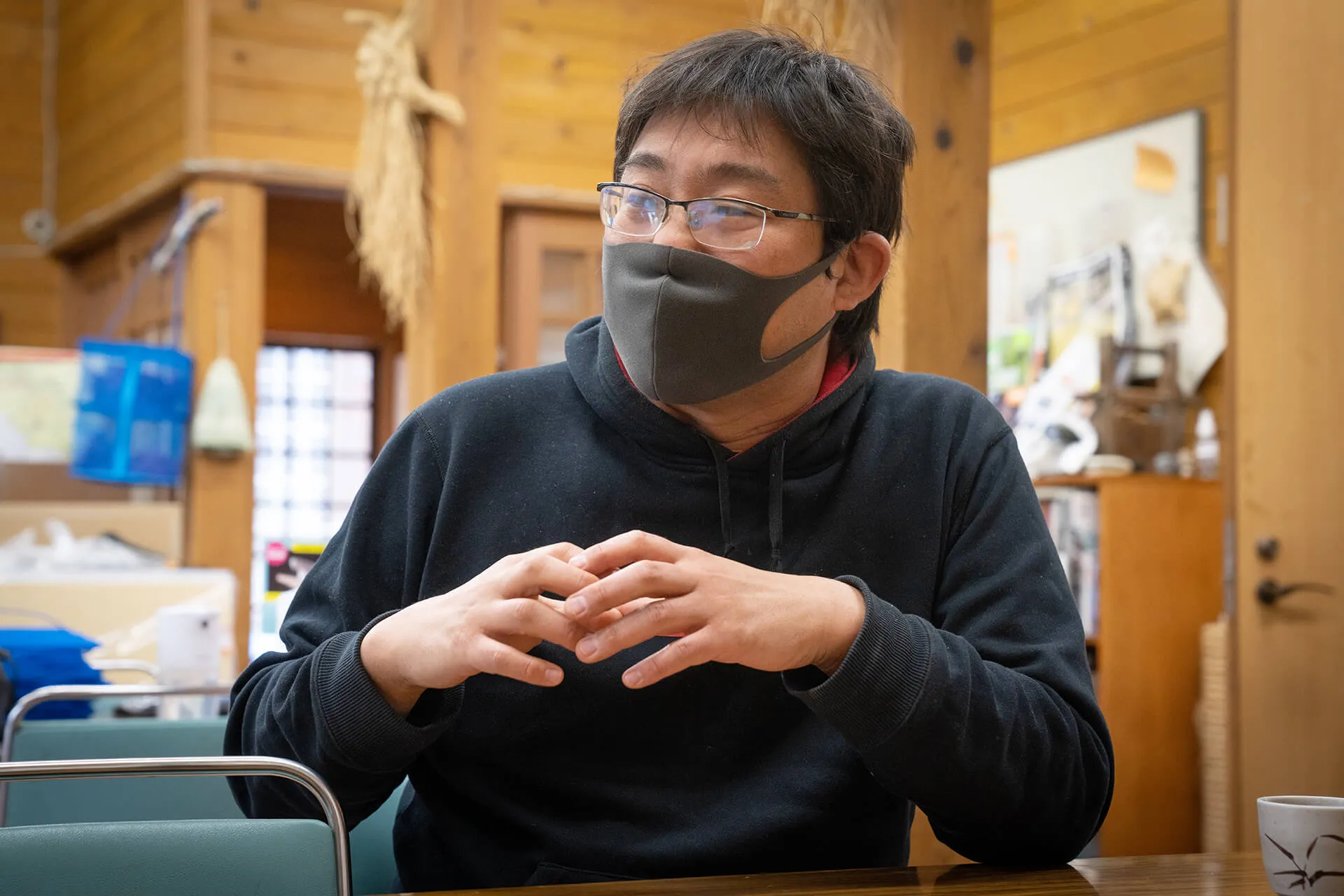
One way to access Oyama Senmaida is to take a train to JR Awa-Kamogawa Station, and then to board a bus. However, the bus only runs every three hours, and the nearest bus stop to your destination is a twenty-minute walk away. For those who do not have the option of driving themselves, taking the 13-kiolmeter taxi ride from Awa-Kamogawa Station may be the most convenient route, but also a relatively costly one.
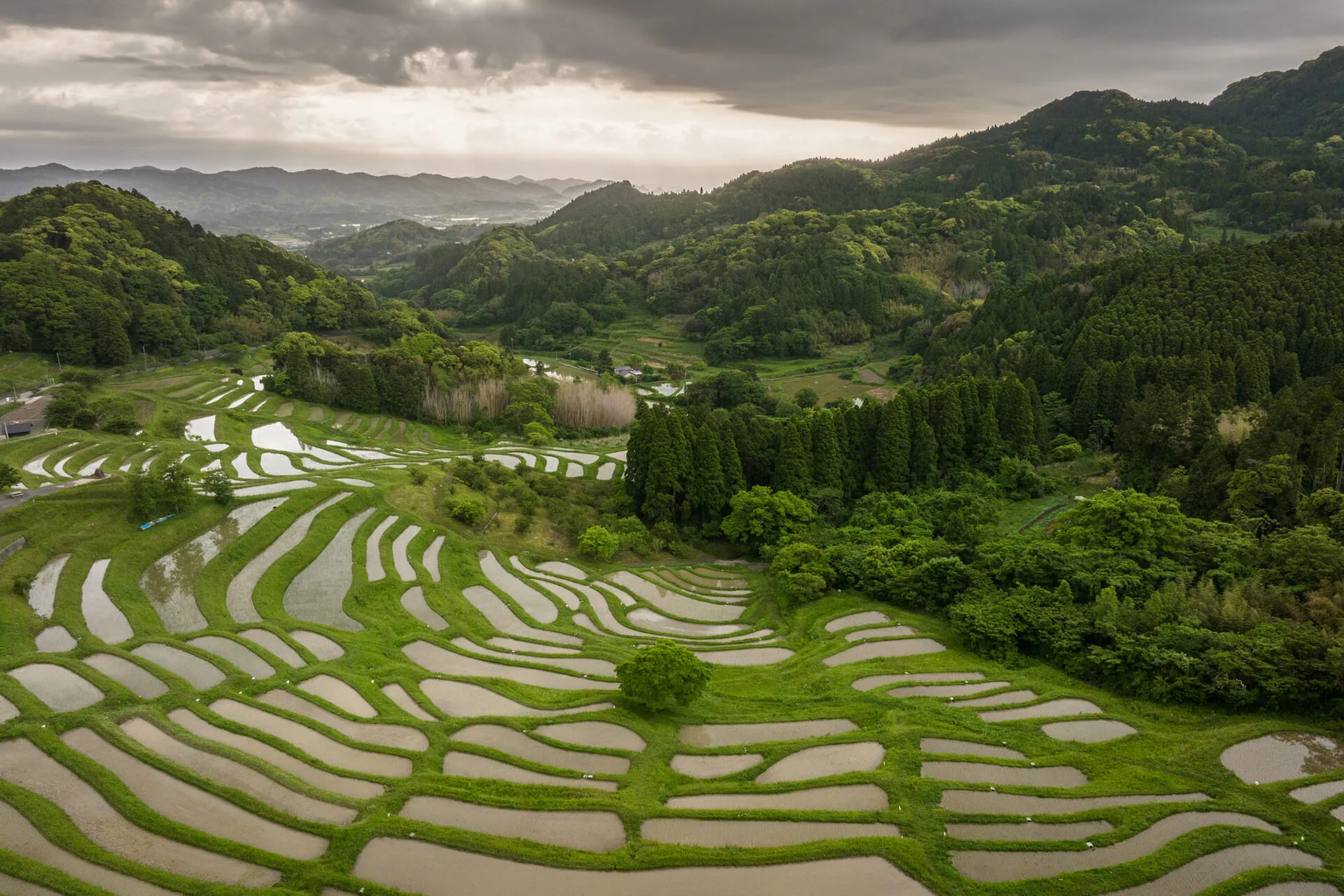
540 Hiratsuka, Kamogawa City
(25 minutes by car from JR Sotobo Line, Awa-Kamogawa Station)
+81-4-7099-9050
Accessibility